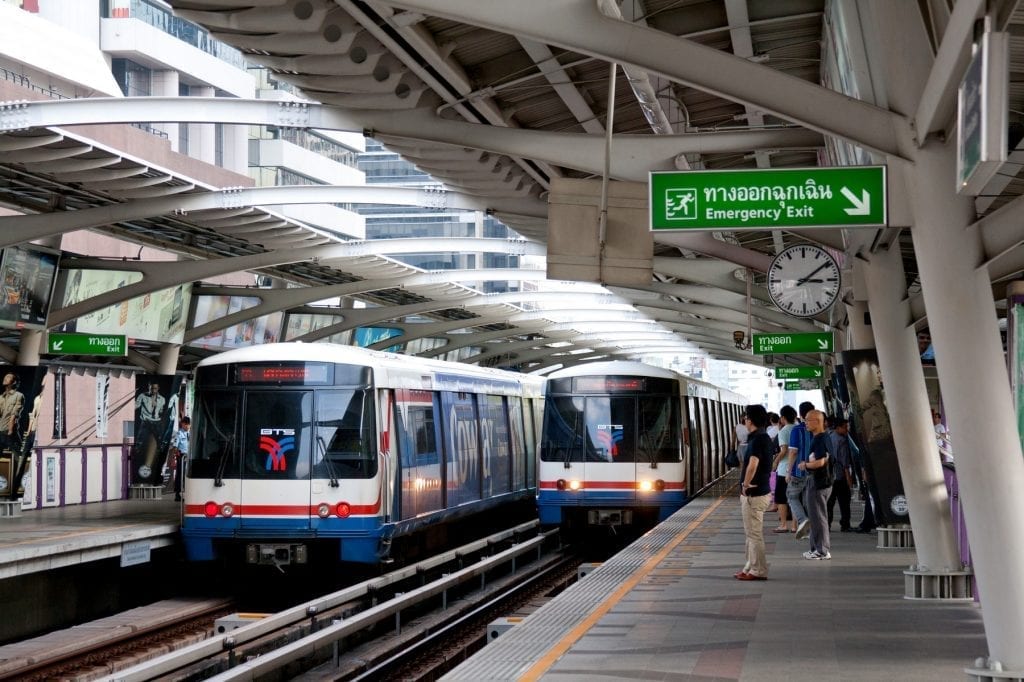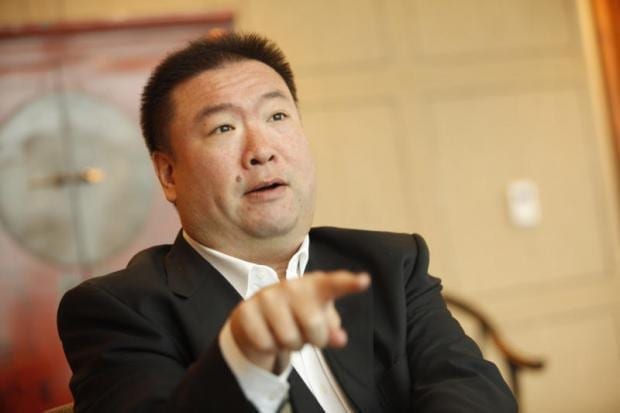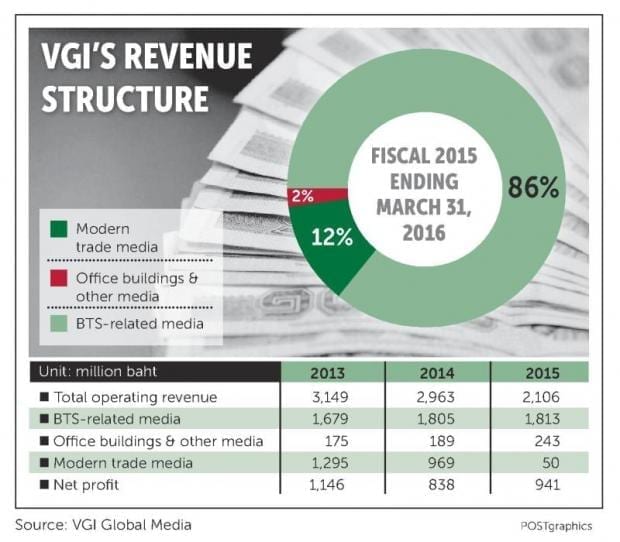
The little tokens and even plastic smart cards now used in the mass transit systems will soon be outdated once the media business unit of BTS Group Holdings introduces new services that will enable skytrain fares to be paid with a smartphone.
By the first quarter next year, BTS commuters will just have to swipe the barcode embedded in the Rabbit Line Pay application at the turnstile. No more queues to get change, tokens or cards.

With the new mobile service, you just swipe your Rabbit Line Pay card and walk through the turnstile, says Mr Kavin.
“Next year, we’re going to change the entire BTS system, enabling users of Rabbit Line Pay [a function embedded in the Line app] to cover skytrain fares via smartphones or mobile devices,” says Kavin Kanjanapas, chief executive of BTS Group, which owns a majority stake of VGI Global Media Plc.
Line is the most popular instant messaging platform in Thailand with more than 33 million active users.
“The new mobile ticketing service will be a great convenience to commuters and perfectly serve modern Bangkok lifestyles, as you just swipe your barcode embedded in the Rabbit Line Pay application and walk through the turnstile,” says Mr Kavin, also chairman of VGI’s executive committee.

The innovative mobile ticketing service shows just how far VGI has come since its humble beginnings. Founded in 1995 with initial registered capital of only 1 million baht, the company was intended to provide marketing and advertising services for the Bangkok Mass Transit System Plc (BTSC), which operates the skytrain.
The company’s registered capital today is 858 million baht, with 686 million in paid-up capital. VGI is now Thailand’s major provider of out-of-home (OOH) media solutions, having more than 10,000 large still-image screens installed in the BTS skytrain network and at large retail stores nationwide.
It also has more than 11,000 square metres of advertising space in the product display zones of large, modern stores and around 5,000 digital screens and other types of OOH advertising at BTS stations, Tesco Lotus, Big C and Watson stores, along with large office towers throughout Bangkok.
It further holds licences to manage various forms of advertising at 13 airports operated by Airports of Thailand Plc and the Civil Aviation Department.
In addition, the company runs retail shops in 23 BTS stations, on top of radio networks covering nearly 2,000 stores in Thailand.
Like the BTSC, whose situation became critical in the wake of the 1997 financial crisis when passenger number was low due to a sharp decline in purchasing power, VGI struggled during its first three years of operations.
After seeing low ridership number of fewer than 100,000 a day (in contrast with original projections of 600,000 a day), almost every advertiser who had booked space with VGI asked to scrap their deals and withdrew their deposits.
As with the BTSC, VGI spent nearly 10 years battling financial constraints. It started seeing a glimmer of hope after the BTSC, which shared a huge portion of the group’s debt, exited its rehabilitation plan in 2008 and merged with Tanayong, the property development firm Mr Kavin’s father, Keeree Kanjanapas, founded in 1968.
The merged company became BTS Group Holdings in 2010, which focuses on four core businesses: mass transit, property, media and services.
After the group’s strong business revival, VGI itself has been successful in developing its lifestyle media network, mainly through active mergers and acquisitions (M&A) over the past couple of years, acquiring stakes in SET-listed Master Ad Plc, the country’s largest OOH advertising company, aviation media company Aero Media, and most recently Rabbit Card and its related online business.
The latest acquisition will enable VGI to enter into an e-payment business that offers Rabbit Card as a payment tool for travelling on the skytrain and for purchasing merchandise from leading retailers nationwide.
Rabbit Line Pay will also enable users to buy goods online and from brick-and-mortar retail stores. It also lets VGI extend its services to cover online payment for skytrain fares and retail purchases within Rabbit Card’s network of merchants nationwide through their mobile devices.
Additional Rabbit businesses comprise other online ventures operated by Rabbit Internet, including Rabbit Daily, which provides lifestyle content through a web portal, and Rabbit Finance, which is a licenced, leading online financial products comparison website previously known as ASK Hanuman.
This strategic move will allow VGI to raise the effectiveness and measurability of its advertising campaigns.
VGI aims to create a new media advertising platform, Data-Centric Media Hypermarket, that can directly reach targeted audiences. It is projected to bring VGI’s daily audience from 1.9 million people to 25 million (mostly active Line users). It has also set a long-term revenue target of 8.2 billion baht over the next five years, up from 3.9 billion in 2015.
To fulfil the ambitious new media advertising platform, Mr Kavin says VGI still needs to complete two to three acquisition deals.
“Over the last 3-4 years, we’ve spent more than 3 billion baht on M&A, mainly on Master Ad, and most recently Rabbit Card,” said Mr Kavin. “From next year onwards, M&A will no longer be our focus. Rather, we will look to the integration of all our businesses to create the best synergy within VGI,” he says.